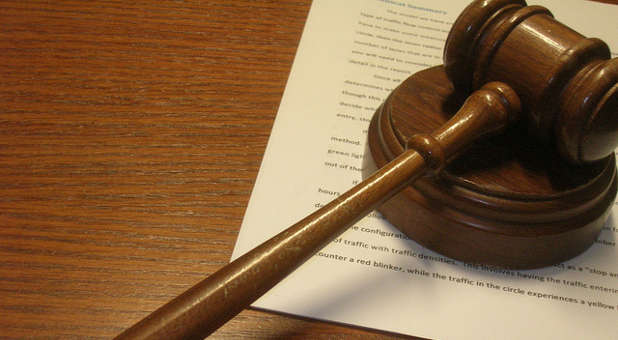VICTORY: Gay Agenda Can’t Force Christian T-Shirt Printer to Violate His Religious Beliefs
A Kentucky court ruled Monday that a Lexington printer is free to decline to print messages that conflict with his religious beliefs and that the government cannot force him to do otherwise.
The Lexington-Fayette Urban County Human Rights Commission ruled last year that Blaine Adamson of Hands On Originals must print messages that conflict with his faith on shirts that customers order from him. Alliance Defending Freedom attorneys representing Adamson appealed the ruling to the Fayette Circuit Court, which has now reversed the commission’s decision.
“The government can’t force citizens to surrender free-speech rights or religious freedom in order to run a small business, and this decision affirms that,” said ADF Senior Legal Counsel Jim Campbell, who argued before the court in Hands On Originals v. Lexington-Fayette Urban County Human Rights Commission. “The court rightly recognized that the law protects Blaine’s decision not to print shirts with messages that conflict with his beliefs, and that no sufficient reason exists for the government to coerce Blaine to act against his conscience in this way.”
The court concluded that Adamson did not violate the law when he declined to print expressive shirts promoting the Lexington Pride Festival, hosted by the Gay and Lesbian Services Organization. Adamson regularly does business with and employs people who identify as homosexual, so his decision was based solely on his constitutionally protected freedom to decline to convey a message with which he disagrees, not on any characteristic of the customer.
“In short, HOO’s declination to print the shirts was based upon the message of GLSO and the Pride Festival and not on the sexual orientation of its representatives or members,” the court wrote in its decision. “In point of fact, there is nothing in the record before the Commission that the sexual orientation of any individual that had contact with HOO was ever divulged or played any part in this case.”
The commission’s ruling had the potential to override the conscience rights of all Lexington-area printers regardless of their views, as a GLSO representative admitted at a hearing last year.
Although Adamson declined to print the shirts because he did not want to convey the message that would be printed on them, he nevertheless offered to put the GLSO in touch with another printer that would produce the shirts for the same price. Unsatisfied, the GLSO filed a complaint with the commission and eventually received the shirts for free from another printer, so it had no problem obtaining its desired goods and services.
“What makes America unique is our freedom to peacefully live out our beliefs. The Constitution protects that freedom,” added co-counsel Beauman with Sturgill, Turner, Barker & Moloney, PLLC, of Lexington. “You’re not free if your beliefs are confined to your mind.”














































